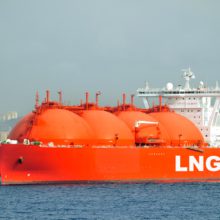
At the end of August, the US Federal Energy Regulation Commission (FERC) announced regulatory timelines for 12 LNG projects. Ms Kramer added: “This means that as well as the six developments that are through the regulatory process, 11 more should receive their final order from FERC by mid-to-late 2019. At the same time, strengthening fundamentals mean Wood Mackenzie believes the global LNG supply-demand gap in 2025 will increase from 45 mmpta to 65 mmpta.” This increases the pressure on US LNG projects to finalise commercial arrangements as they look to take FID in the next 12-18 months.
“Gas supply will rise in importance for the next wave of US LNG. The US market will increase by more than 30 billion cubic feet per day (cfd) between 2012, when the first US project took FID, and 2022 when those projects will be online,” Ms Kramer said. In 2022, 36% of US gas will be consumed in or exported through the West South Central census region, which includes Texas and Louisiana. This concentration of demand means there will be more competition for pipeline capacity to reach new LNG projects. She added: “This means gas supply should be a focus area for the next wave of US LNG.
Ms Kramer said: “US producers may also be interested in getting into the mix. Notably absent from the first wave, US producers have witnessed LNG exports rise to current levels of over 3 billion cfd. They are expected to approach 10 billion cfd in 2020. Producer involvement would likely change the commercial structures and risk-sharing mechanics of future US LNG projects. We are hearing interest from US producers, LNG buyers, and project developers, but have yet to see a big announcement.”
